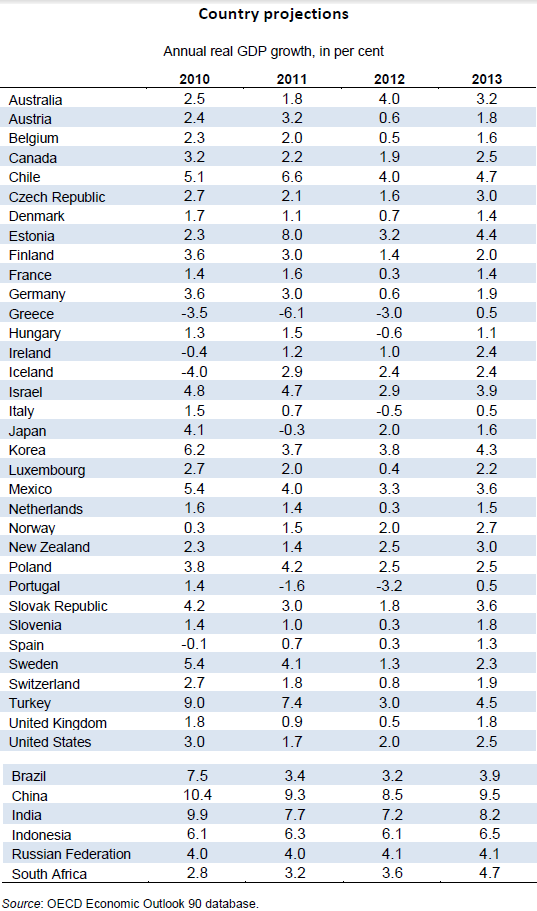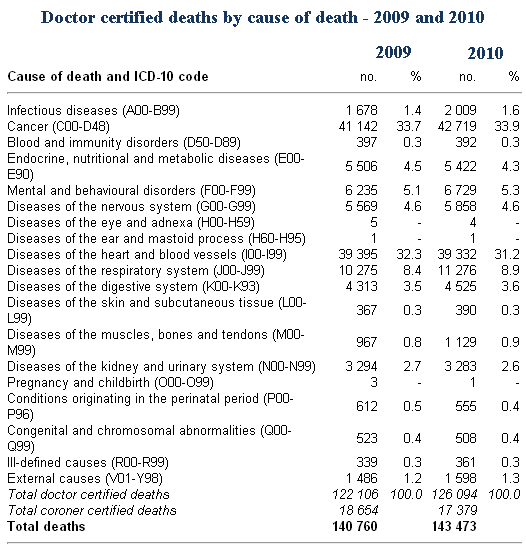The magic 2.5%. When in doubt just wave the magic wand and declare across the board savings of whatever amount you need to make a promise sound plausible. Hence this little gem from Treasurer Wayne Swan’s cost cuts statement:
A one‑off increase of 2.5 per cent to the efficiency dividend for most Commonwealth departments and agencies in the 2012‑13 financial year. This measure has no impact in 2011‑12 but is expected to reduce cash payments by $1.5 billion over the period 2012‑13 to 2014‑15;
Thus, by happy coincidence Wayne is able to tell us this:
The underlying cash deficit is expected to be $37.1 billion (2.5 per cent of GDP) in 2011‑12, returning to a small surplus of $1.5 billion (0.1 per cent of GDP) in 2012‑13
These completely unspecified efficiency dividends really are wondrous things. $1.5 billion in savings. $1.5 billion as a surplus.
Before you believe, go and read the Governor. This annual smoke-and-mirrors statement known as the Mid-Year Economic and Fiscal Outlook is based on a host of assumptions most of which will prove untrue as 2012-13 rolls around. Forecasting is such an inexact science you have to wonder why anyone bothers to do it for events that are more than a few months out. And if you don’t believe me, have a read of the views of Reserve Bank Governor Glenn Stevens.
In a recent speech the Governor said in his view it would be vastly preferable for discussions of forecasts to be couched in more probabilistic language than tends to be the case in practice, and for there to be more explicit recognition that the particular numbers quoted are conditional on various assumptions. He gave this example of the RBA and predicting inflation rates:
For monetary policy operating a medium term inflation target, we are naturally interested in our ability to forecast inflation. Experience over the inflation targeting era (since 1993) suggests that the probability of the CPI outcome being within half a percentage point of the central forecast is roughly two in five at either a one year or a two year horizon. For underlying inflation, the probability of the forecast being within half a percentage point is about two in three at one year and just over one in two at two years. The smaller forecasting errors for underlying inflation reflect the inherently more stable properties of the underlying measure, which of course is by design.
Hence, if the central forecast for CPI inflation at a two year horizon was 2½ per cent, the chances of the outcome being between 2 and 3 per cent, based on this historical experience, would be about two in five. The chances of being between 1½ and 3½ per cent would be three in five. I note in passing that, if this is a reasonable description of forecast accuracy, it suggests that the configuration of the inflation target is a pretty good one (though I hasten to add that, when it was first set out, we did not really have a great deal of confidence in the accuracy of inflation forecasts).
So to the GDP growth predictions. Those rotten Europeans. Their sovereign debt crisis, Treasurer Swan tells us, has caused global growth prospects to be downgraded markedly in 2012, with the euro area expected to return to recession. Hence his prediction that real GDP is now expected to grow by 3¼ per cent in 2011-12 and 2012-13, downgrades of three quarters of a percentage point in 2011-12 and half of a percentage point in 2012-13.
A cautious man our Wayne. Overnight the OECD came out with its version of the period ahead. You can take your own pick.

Rupert’s choice in music. Apparently the press baron thought a little tune from a requiem mass would be appropriate for his marriage to Wendy Deng. A young Charlotte Church who was flown to New York to sing for the happy occasion ended up choosing something else but I thought I should give you Rupert Murdoch’s original choice.
And for her troubles the young lass was offered, so she told the Leveson phone hacking enquiry overnight, a £100,000 fee or favourable treatment in the Murdoch press (a suggestion the Murdoch empire disputes). Her management suggested taking the latter but it did her no good in the long term.
Reports The Guardian:
Church talked about the “psychological grind” she had endured since she found fame at the age of 12, detailing a catalogue of invented or embroidered stories, more grubby reporters in her shrubbery and the traditional tabloid journey from devotion to denigration. They had built her up, so they felt they had the right to knock her down. From the “voice of an angel” to the “vice of an angel”. When she was approaching her 16th birthday, the Sun had a daily clock counting down the days until she could have legal sex. Tasteful.
The way we die. Cancer tops the list again this year as our principal cause of death. Australian Bureau of Statistics figures out today show cancers represent one-third (33.9%) of all doctor certified deaths followed by circulatory diseases at 31.2% and respiratory diseases at 8.9%

Note that the percents figures do not include deaths certified by coroners.








I note that the second most common cause of death is diseases of the heart and blood vessels. I wonder if this is the area that catches diabetes sufferers, given that disease’s predilection for inflicting significant circulatory system damage.
Given the continued increase in the incidence in the rate of diabetes, I would expect these numbers to continue to rise.
Murdochracy :- “($?)100,000” worth of free positive PR?
How would that be calculated – and how does it “compere” to the deal with “Abbott and his Alter Boys”? How do they put a monetary value on their treatment in a “free market”?
Or, conversely, the value of the negative crap piled on the left, to make them look bad by comparison – thus influencing voter perception of “fitness to govern”?
Then they’ll turn round and dismiss any suggestion that they have such “influence” – even though they can evaluate such a thing, when necessary :- as in “Charlotte Church’s case”?
Does that sort of “deal” qualify as a “political donation”?
Diagnosis: Sick ( the Charlotte Church case)
Predisposing causes:
Prognosis:
Fill in the blanks while congratulating yourselves on living in Australia where we are quarantined from such infection.
Assuming Charlotte Church’s evidence faithfully recalls the events, this represents a specific allegation of a protection racket. It validates Tom Watson’s question addressed to James Murdoch, when he put it to Murdoch that News was a mafia-like business.